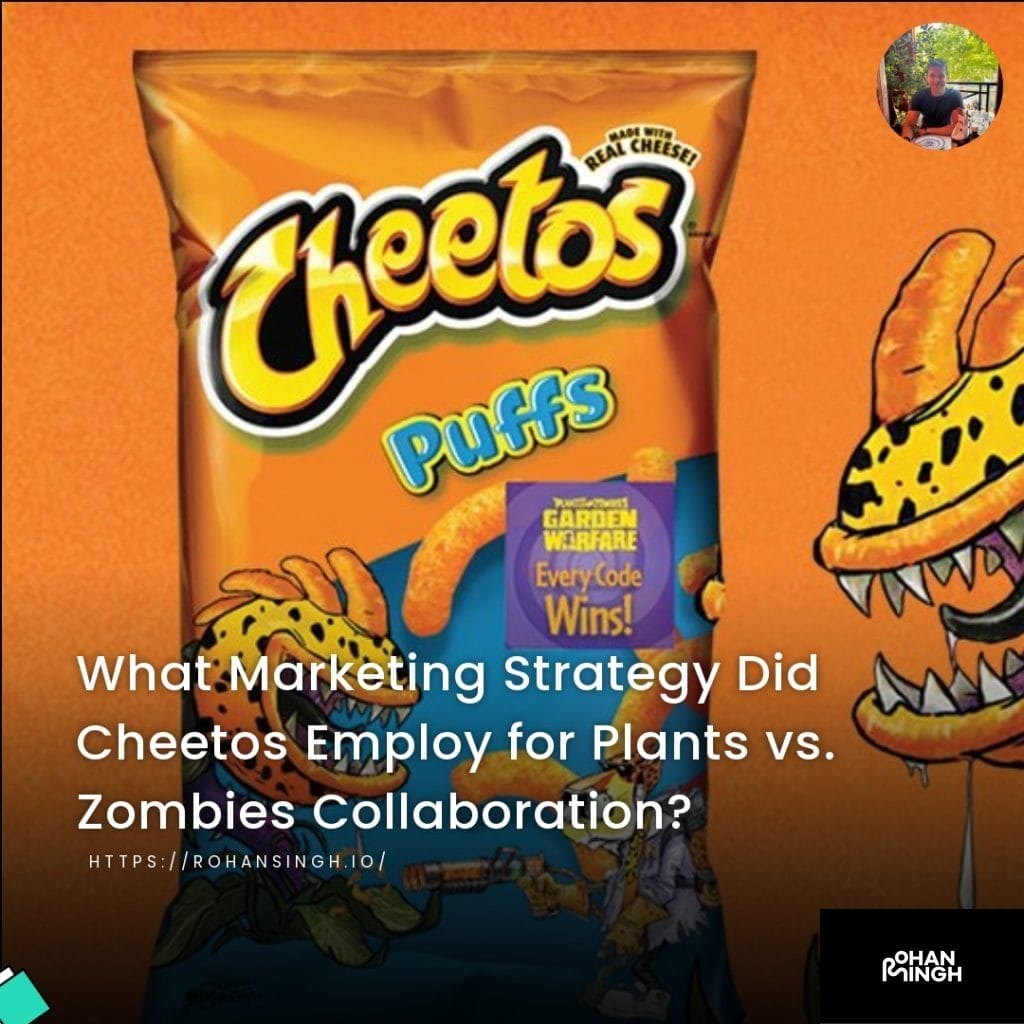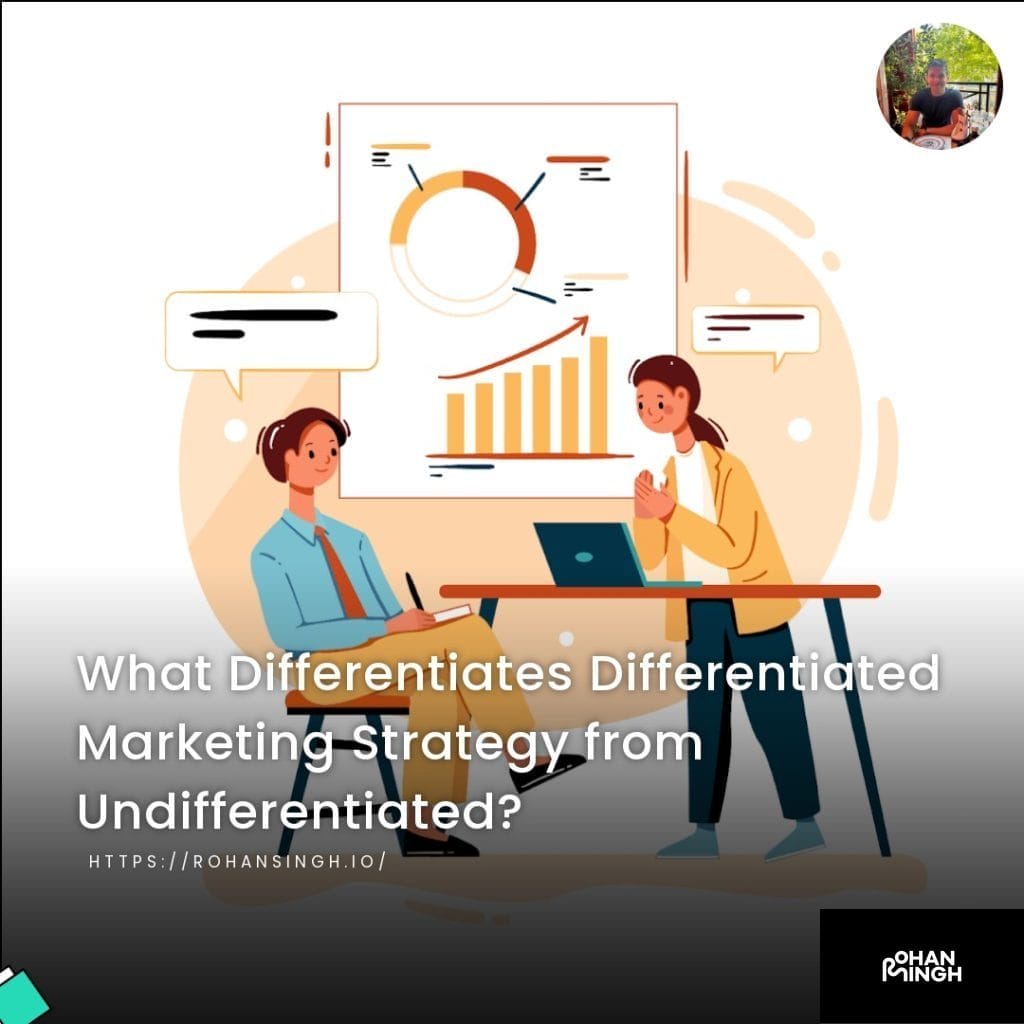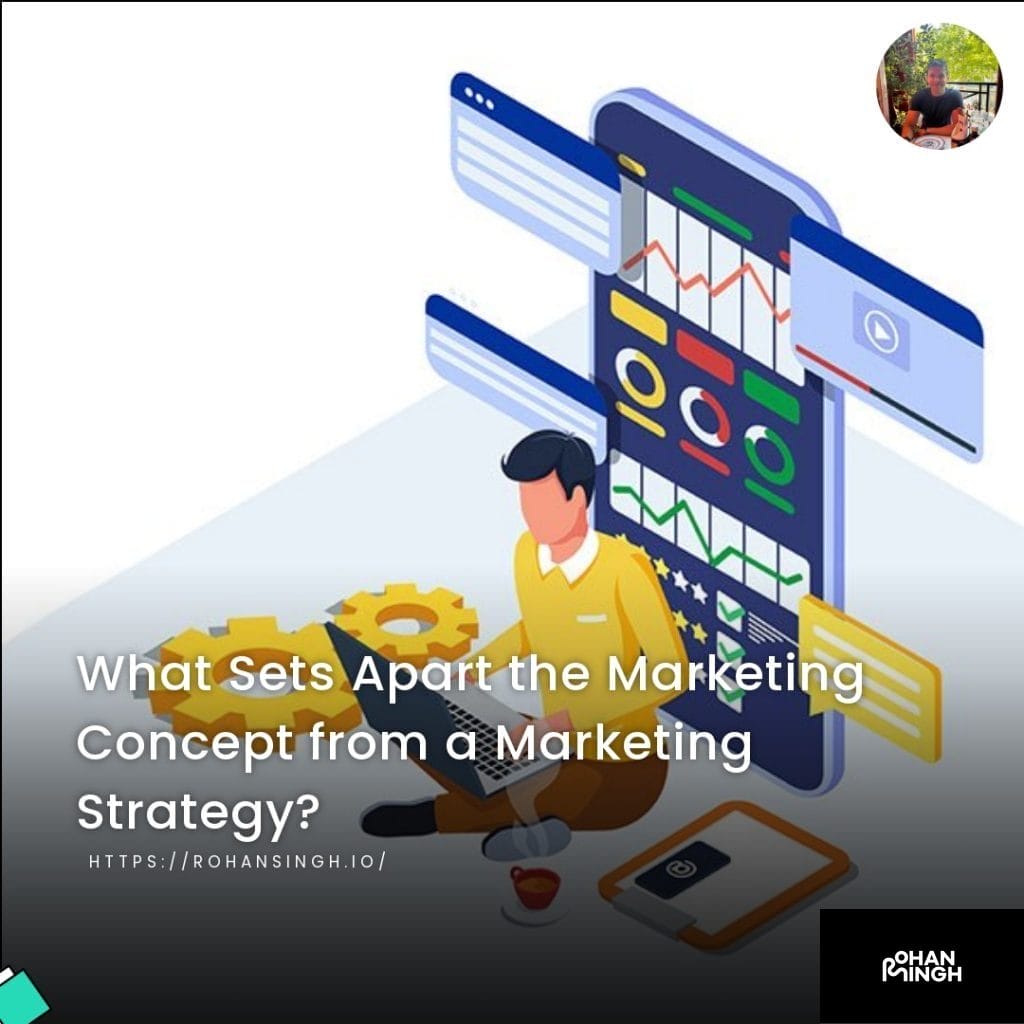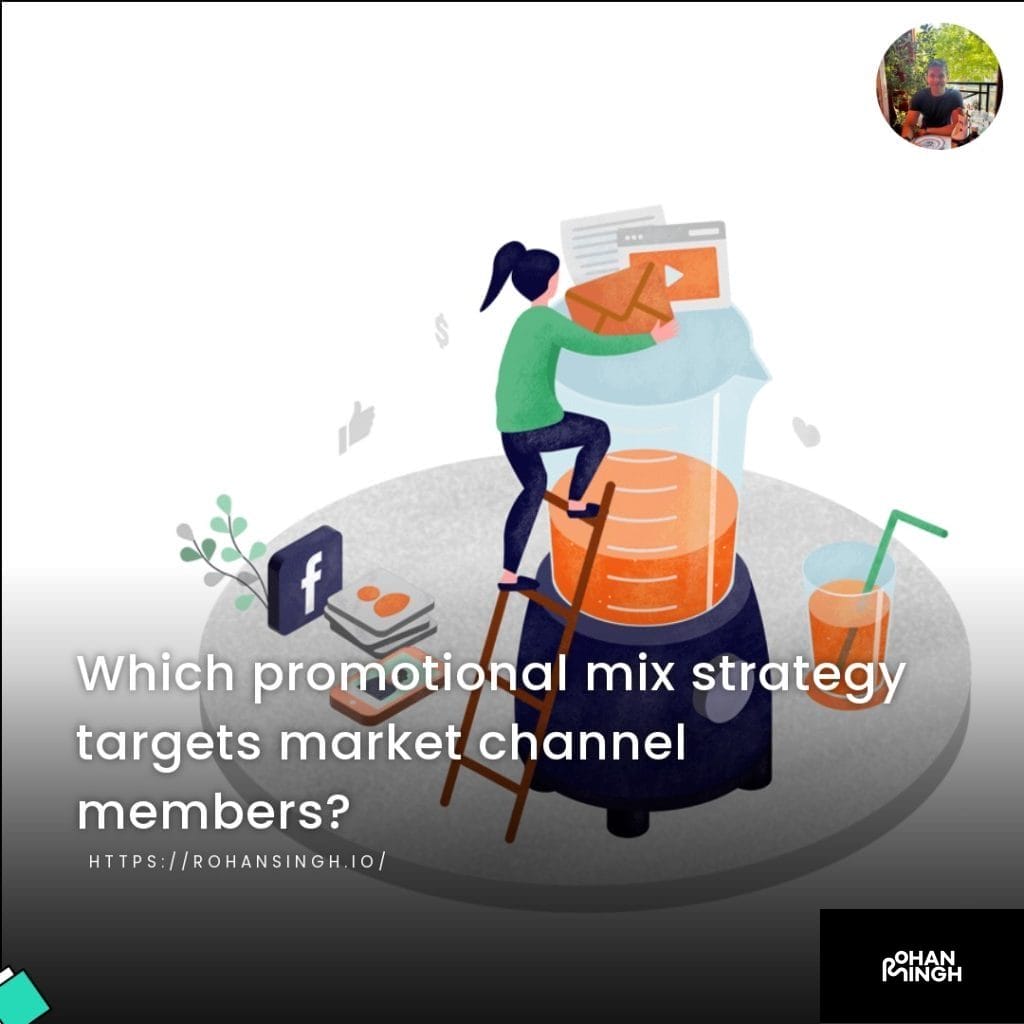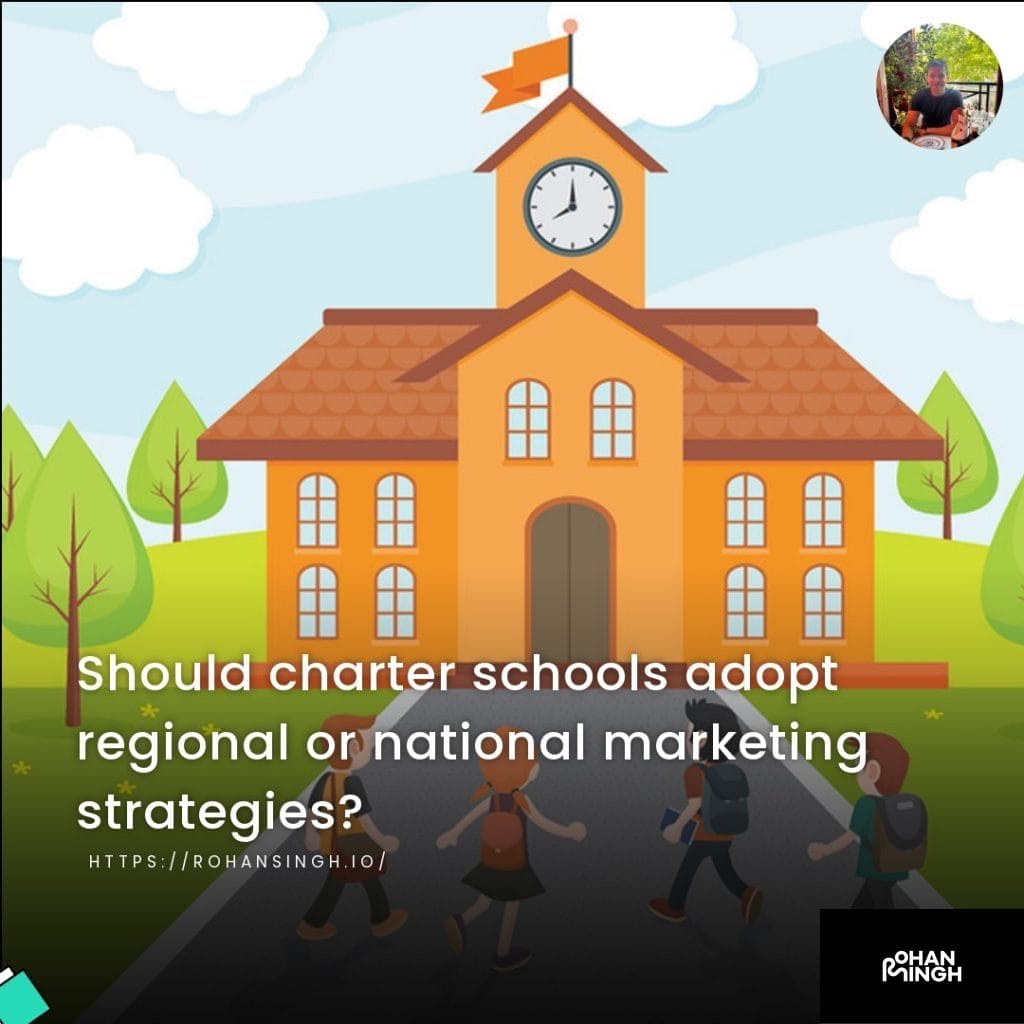What sets Verizon, T-Mobile, and AT&T apart in their commercial marketing strategies?
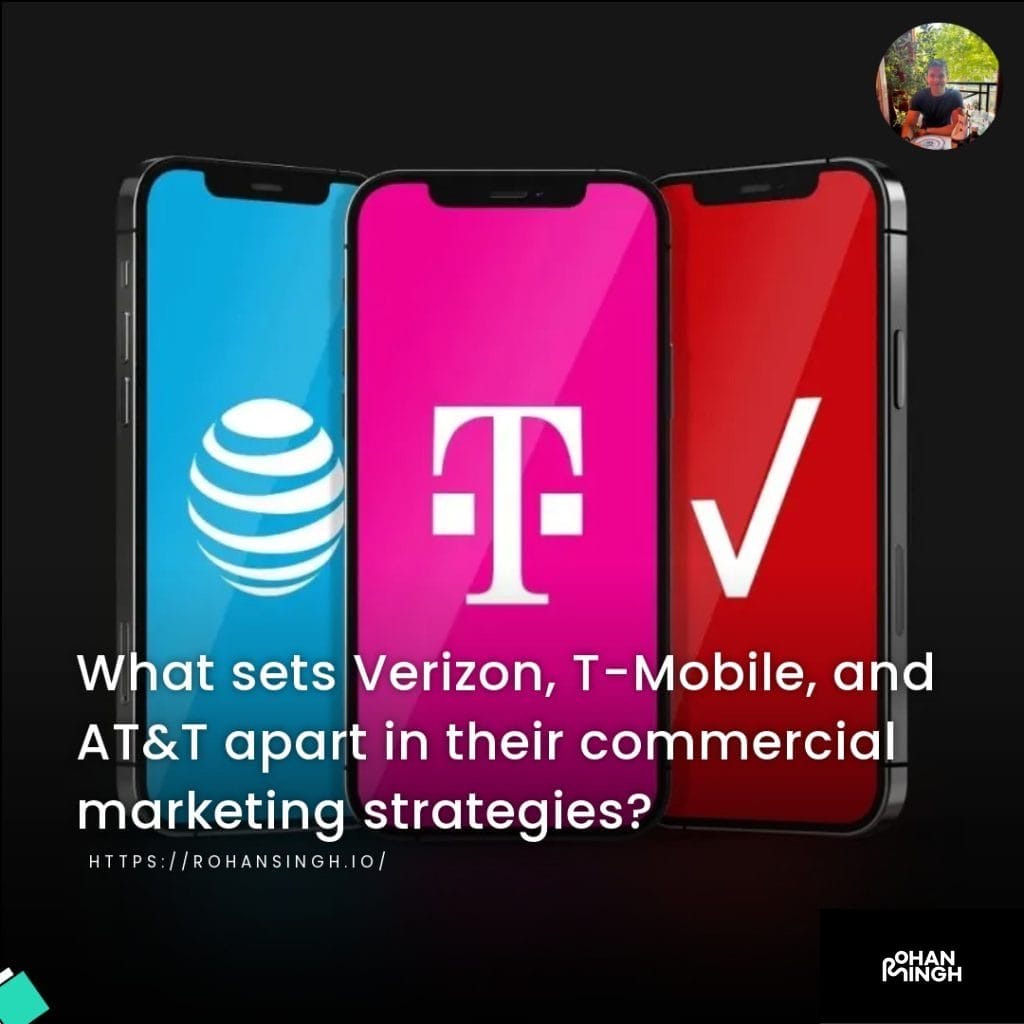
Background
Verizon, T-Mobile, and AT&T are three major wireless carriers competing fiercely in the telecommunications industry. Each company has its unique marketing strategy to attract customers and gain a competitive edge.
Table of Contents
ToggleVerizon is known for its extensive network coverage and reliable service. They focus on promoting their unlimited plans, which offer high-speed data, unlimited talk, text, and premium network access. Verizon’s marketing campaigns often highlight the benefits of their network coverage, emphasizing that they are the largest and most reliable company in the industry. They also offer additional perks like Apple Music and mobile hotspot functionality to enhance the customer experience. With a strong focus on business customers, Verizon offers business phone plans and mobile device management solutions, which makes them attractive to government agencies and large corporations.
On the other hand, T-Mobile has positioned itself as the “Un-carrier” and differentiates itself from the competition by offering unlimited plans without extra charges or hidden fees. Their marketing strategy revolves around simplicity and affordability, appealing to younger and budget-conscious consumers. T-Mobile’s 5G network is a major selling point, as they claim to have the largest 5G network in the country. They also focus on customer service, offering perks like free international travel plans and a Netflix subscription for family plans. T-Mobile’s marketing campaigns often feature celebrities like Kate McKinnon to create buzz and engage with potential customers.
AT&T, as one of the industry leaders, adopts a comprehensive marketing strategy that targets both consumer and business segments. They offer a wide range of plan options, from basic phone plans to business cell phone plans, catering to the different needs of customers. AT&T’s marketing campaigns emphasize their advanced cellular and mobile network technologies, promising customers a seamless and high-quality experience. They also highlight additional features like cloud storage and business solutions to attract potential customers looking for comprehensive services. AT&T’s marketing strategy is focused on promoting its reputation as a reliable and trusted network provider.
Overall, each company takes a different approach to marketing its services, leveraging its unique strengths and features to attract and retain customers.
Overview of Verizon, T-Mobile, and AT&T Marketing Strategies
Verizon, T-Mobile, and AT&T are three major players in the wireless carrier industry, each with its unique marketing strategies. Verizon, known for its extensive network coverage and reliability, focuses on promoting its unlimited plans and premium network access. In recent activities, Verizon has consistently emphasized its position as the largest and most reliable company in the industry, relying on its robust network coverage to attract customers. They have also incorporated additional perks like Apple Music and mobile hotspot functionality to enhance the customer experience.
On the other hand, T-Mobile has differentiated itself as the “Un-carrier” by offering unlimited plans without extra charges or hidden fees. Their marketing strategy revolves around simplicity and affordability. They have recently highlighted their extensive 5G network coverage and positioned themselves as the leader in this technology. T-Mobile’s marketing campaigns have also been creative and engaging, featuring celebrities like Kate McKinnon to generate buzz and appeal to potential customers.
AT&T, as an industry leader, takes a comprehensive approach to its marketing strategy. They target both consumer and business segments, offering a wide range of plan options to cater to different customer needs. AT&T’s marketing campaigns have recently emphasized their advanced cellular and mobile network technologies, aiming to provide customers with a seamless and high-quality experience. They also promote additional features like cloud storage and business solutions to attract potential customers seeking comprehensive services.
In summary, Verizon focuses on network coverage and unlimited plans, T-Mobile differentiates itself with simplicity and affordability, and AT&T targets a wide range of customers with advanced technologies and comprehensive services. Each company has its unique marketing approach to attract customers and gain a competitive edge in the industry.
Let's talk about your future project!
Eager to collaborate on your upcoming endeavor? Let's explore and ignite the potential of your next big idea, shaping a promising future together!
Verizon Wireless
Verizon Wireless is one of the largest and most well-known wireless carriers in the industry, with a strong focus on network coverage and reliability. Their marketing strategy revolves around promoting their unlimited plans and premium network access as key differentiators. With a reputation for offering a robust and extensive network, Verizon consistently positions itself as the go-to choice for customers who prioritize reliable connectivity. They leverage their strong market presence to attract potential customers, emphasizing the benefits of their unlimited plans and the superior network experience they provide. Additionally, Verizon enhances the customer experience by offering additional perks such as Apple Music and mobile hotspot functionality, further solidifying its position as a leader in the industry. In their marketing campaigns, Verizon aims to convey the message that they are not only the largest but also the most reliable wireless carrier in the market, providing a seamless and high-quality experience to their customers.
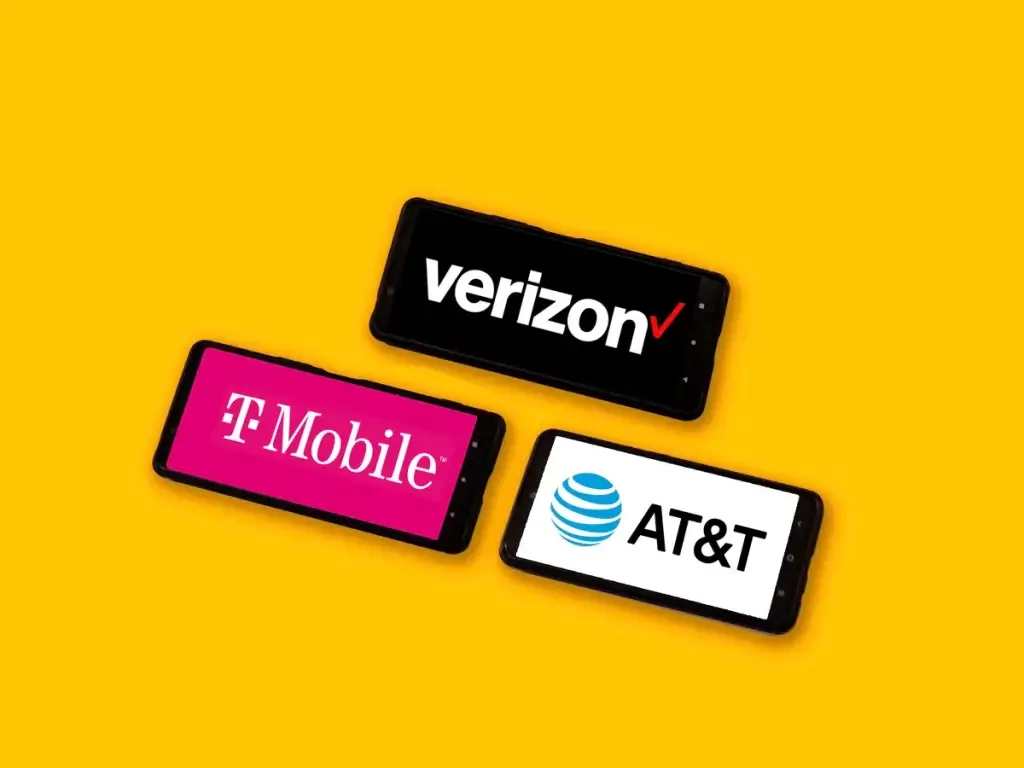
History and Background
Verizon Wireless, T-Mobile, and AT&T are three major players in the highly competitive telecommunications industry. Each company has its unique history and background that has propelled them to its current position as the industry leader in the wireless carrier market.
Verizon Wireless, a subsidiary of Verizon Communications, traces its roots back to the Bell Atlantic Corporation, which was one of the seven regional telephone companies formed after the breakup of AT&T in 1984. In 2000, Bell Atlantic merged with GTE Corporation to create Verizon Communications. This merger positioned Verizon as a major player in the telecommunications industry, and the company continued to expand its wireless network and services. Today, Verizon Wireless offers a range of products and services, including unlimited plans, additional perks such as Apple Music, mobile hotspots, and high-speed data.
T-Mobile, on the other hand, started as VoiceStream Wireless in 1994. Over the years, the company went through several mergers and acquisitions before becoming the T-Mobile we know today. T-Mobile gained prominence in the market with its “Un-carrier” strategy, which aimed to disrupt traditional wireless carriers by offering innovative plans and experiences for consumers. T-Mobile’s marketing campaigns, led by spokespersons such as comedian Kate McKinnon, have helped the company gain a loyal customer base. The company is also known for its industry-leading 5G network and affordable plans.
AT&T has a long history in the telecommunications industry, tracing its origins back to the invention of the telephone by Alexander Graham Bell. AT&T played a significant role in the development of the telephone industry, and its subsidiary, the Bell System, was a dominant force for many years. In 1984, the Bell System was broken up into seven regional telephone companies, one of which was BellSouth, which later merged with AT&T in 2006. Today, AT&T offers a range of wireless services, including business phone plans, family plans, and unlimited texting.
These companies have each carved out their niches in the wireless carrier market, with Verizon known for its reliable network coverage, T-Mobile for its disruptive marketing and customer-centric approach, and AT&T for its extensive history in the telecommunications industry. As they continue to innovate and adapt to changing consumer preferences, Verizon, T-Mobile, and AT&T will undoubtedly play integral roles in shaping the future of the wireless carrier market.
Market Share
In the highly competitive telecommunication industry, AT&T and Verizon have established themselves as two industry leaders, each commanding a significant market share. According to recent data, AT&T holds the top position in terms of market share, with approximately 32% of the U.S. wireless market. Verizon closely follows with around 29% market share. These figures demonstrate the prominence and influence of both companies in the industry.
AT&T’s extensive market share can be attributed to its long-standing history in the telecommunications field, dating back to Alexander Graham Bell’s invention of the telephone. The company’s legacy and strong network infrastructure have allowed it to capture a substantial customer base over the years. Verizon, on the other hand, has positioned itself as a major player through strategic acquisitions, partnerships, and its commitment to network expansion and innovation.
In terms of subscribers and network size, both AT&T and Verizon are among the largest in the United States. AT&T serves millions of customers and boasts an extensive network that covers a significant portion of the country. Similarly, Verizon has a vast network reach, ensuring strong coverage and reliable service for its customers. While Sprint and T-Mobile also hold notable market shares, AT&T and Verizon remain at the forefront in terms of subscribers and network size, further cementing their positions as industry leaders.
Overall, AT&T and Verizon’s robust market shares highlight their significant presence and influence in the telecommunication industry. Their extensive networks, combined with their ongoing efforts to provide innovative services and better customer experiences, ensure that they continue to dominate the market and remain top choices for consumers.
Coverage Map
When it comes to coverage, both Verizon and T-Mobile have made significant investments to ensure that their customers have access to reliable and widespread networks. Verizon has long been known for its extensive coverage, and it continues to expand its network reach. With its 5G network, Verizon is leading the way in providing next-generation connectivity. According to recent reports, Verizon’s 5G network now covers over 230 million people in the United States. This means that a large portion of the population can enjoy the benefits of faster speeds and lower latency offered by 5G.
T-Mobile, on the other hand, has also been rapidly expanding its network coverage. With the merger with Sprint, T-Mobile has further strengthened its position as a major player in the industry. T-Mobile’s 5G network covers over 106 million people in the United States, and the company has plans to continue expanding its coverage. With a focus on improving rural coverage and bridging the digital divide, T-Mobile aims to ensure that as many people as possible can access their network.
To access coverage maps and get more detailed information about the coverage provided by Verizon and T-Mobile, customers can visit their respective websites. These coverage maps allow users to enter their location and see the network availability in their area. They provide information about 4G and 5G coverage, as well as specific details about signal strength and network capacity. This allows potential customers to make informed decisions about which carrier offers the best coverage for their needs.
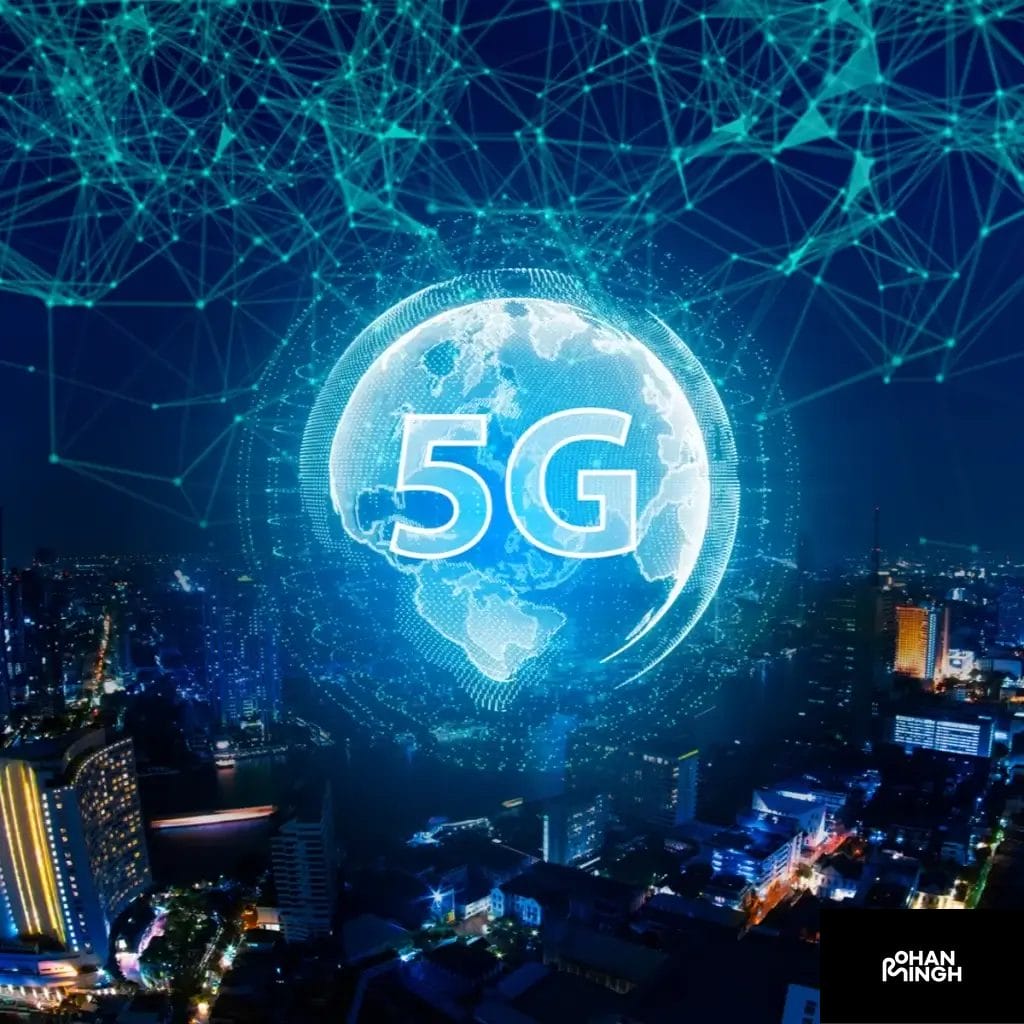
Mid-Band 5G Network
T-Mobile and Verizon have both made significant advancements in the implementation of their mid-band 5G networks. These networks offer a balance between range and speed, providing improved performance for users. T-Mobile’s mid-band 5G network, known as “Extended Range 5G,” covers over 270 million people and delivers speeds up to eight times faster than LTE. With this network, T-Mobile aims to provide more reliable and consistent connectivity, especially in suburban and rural areas.
Verizon, on the other hand, has deployed its mid-band 5G network in the 3.5 GHz C-band spectrum. This network offers a range of coverage and speeds, with the potential to reach around 100 million people. While the exact speeds may vary depending on location and network congestion, Verizon’s mid-band 5G is expected to provide gigabit-level speeds, significantly faster than traditional LTE.
To make the most of these mid-band 5G networks, users need compatible devices. Some of the 5G-compatible phones include the latest models from popular manufacturers such as Apple, Samsung, and Google. These phones are equipped with the necessary antennas and modems to connect to the mid-band 5G networks seamlessly.
As T-Mobile and Verizon continue to expand their mid-band 5G networks, users can expect even more robust coverage and faster speeds, unlocking new possibilities for mobile experiences and connecting to the world around them.
Unlimited Plans and Cell Phone Plans
When it comes to unlimited plans and cell phone plans, Verizon, AT&T, and T-Mobile each have their offerings to cater to the diverse needs of consumers. Verizon, being one of the largest wireless carriers in the United States, provides a range of unlimited plans to suit different budgets and preferences. Their plans include features such as unlimited talk, text, and data, with the option to include additional lines for family plans or business plans. Verizon also offers premium network access, allowing customers to enjoy the best possible speeds and coverage.
AT&T, another major player in the market, offers unlimited plans that come with a variety of options and benefits. Their plans include unlimited data, talk, and text, along with additional perks such as access to HBO Max and the option to add premium features like high-speed data and international travel plans. AT&T also provides business cell phone plans with a range of services for entrepreneurs and enterprises.
On the other hand, T-Mobile has built a strong reputation for its competitive unlimited plans and affordability. Their Magenta plan offers unlimited talk, text, and data, along with benefits like a Netflix subscription and international texting and data in over 210 countries. T-Mobile’s plans also include access to their nationwide 5G network, making it a compelling choice for those seeking fast and reliable connectivity.
When comparing the pricing structures of these carriers, it’s important to take into account potential additional costs such as taxes and fees that may vary depending on the state or region. Verizon and AT&T tend to have higher monthly prices compared to T-Mobile, but they also offer additional perks and premium network access. Ultimately, the choice between these carriers’ unlimited and cell phone plans depends on individual needs, budgets, and preferences.
In conclusion, Verizon, AT&T, and T-Mobile offer a range of unlimited plans and cell phone plans to cater to the diverse needs of consumers. Each carrier has its unique offerings, pricing structures, and additional perks. Whether it’s Verizon’s premium network access, AT&T’s access to HBO Max, or T-Mobile’s affordability and nationwide 5G network, customers have options to choose from based on their requirements.
Faster Data Speeds and Download Speeds for Customers
Verizon, T-Mobile, and AT&T are continuously striving to offer faster data speeds and download speeds to their customers. These speeds are crucial for today’s consumers who rely heavily on their mobile devices for various tasks, including streaming, gaming, and downloading large files.
However, it’s important to note that data speeds and download speeds can vary based on a multitude of factors. Location plays a significant role, as different carriers may have varying levels of coverage and network infrastructure in certain areas. The type of device being used also affects speeds, as newer smartphones generally have better capabilities to handle faster data speeds.
Signal strength is another determining factor. If a customer is in an area with a weak signal, they may experience slower data speeds or difficulty in accessing the internet altogether. Additionally, network congestion, which occurs when there are too many users accessing the network simultaneously, can impact speeds during peak hours.
According to recent studies from Ookla and Opensignal, Verizon consistently provides the fastest data speeds and download speeds in the United States. Their network is known for its reliable and robust coverage, allowing customers to enjoy high-speed internet even in remote areas. T-Mobile follows closely behind, with a strong 5G network that delivers impressive speeds across the country. AT&T also offers competitive speeds, though some studies suggest they might lag slightly behind Verizon and T-Mobile in terms of average speeds.
In conclusion, Verizon, T-Mobile, and AT&T are all committed to delivering faster data speeds and download speeds to their customers. While coverage, device capability, signal strength, and network congestion can influence these speeds, recent studies show that Verizon tends to offer the fastest and most consistent performance. However, customers need to consider their specific needs and location when choosing a carrier, as different areas may prioritize different factors.

Customer Service
Customer service plays a vital role in the overall experience customers have with their wireless carriers. Verizon, T-Mobile, and AT&T all place a strong emphasis on providing quality customer service to their users.
Verizon is known for its reliable and efficient customer service. They have a strong support team that is readily available to assist customers with any issues or concerns they may have. Verizon also offers a variety of self-service options, allowing customers to manage their accounts, pay bills, and troubleshoot problems online or through their mobile app. On top of that, Verizon has an extensive network of retail stores where customers can receive in-person assistance from knowledgeable staff.
T-Mobile prides itself on its exceptional customer service as well. They have implemented a team of dedicated representatives known as T-Mobile Experts, who are trained to provide personalized support and guidance to customers. T-Mobile also offers several unique perks, such as T-Mobile Tuesdays, where customers can receive freebies and discounts on various products and services. However, some customers have reported issues with T-Mobile’s customer service, citing long wait times or difficulty in getting their concerns addressed promptly.
AT&T also strives to deliver excellent customer service. They have a comprehensive support system in place, including call centers, online chat support, and an extensive knowledge base on their website. AT&T offers personalized assistance to business customers through their AT&T Business Center, which provides specialized support for all their business needs. However, some customers have reported occasional issues with AT&T’s customer service, such as difficulties in resolving billing disputes or receiving timely responses to inquiries.
In conclusion, Verizon, T-Mobile, and AT&T all prioritize customer service and have put measures in place to assist their users effectively. While each carrier has its unique features and perks, it’s worth noting that customers’ experiences with customer service can vary.
Commercials and Marketing Campaigns
Verizon, T-Mobile, and AT&T all have unique and captivating commercials and marketing campaigns that highlight their products and services. Verizon, being known for its reliability and strong network coverage, often showcases its commitment to keeping customers connected in its commercials. Their marketing campaigns focus on emphasizing how Verizon’s network enables seamless communication and endless possibilities for both individuals and businesses. Verizon’s commercials often feature relatable and heartwarming stories of people staying connected with their loved ones, achieving their goals, or simply enjoying life’s everyday moments.
T-Mobile, on the other hand, takes a different approach with its commercials and marketing campaigns. They often feature popular celebrities such as Zachary Levi and musician Billie Eilish to create a fun and youthful image. T-Mobile’s commercials are known for their humor and light-heartedness, aiming to differentiate themselves from the more traditional and serious image of their competitors. T-Mobile’s marketing campaigns focus on showcasing their value-packed plans, often highlighting their unlimited data and perks such as free Netflix or Apple Music subscriptions.
AT&T also has its unique style when it comes to commercials and marketing campaigns. They often feature well-known actors and comedians, such as Kate McKinnon, to entertain and capture viewers’ attention. AT&T’s commercials usually focus on their diverse range of offerings for both individuals and businesses, showcasing the benefits of their plans, network coverage, and additional services. Their marketing campaigns often emphasize the reliability, speed, and security of AT&T’s network, positioning themselves as a trusted and innovative choice for customers.
While each carrier has its style and approach, they aim to attract customers through their commercials and marketing campaigns. Whether it’s Verizon’s reliability, T-Mobile’s value-packed plans, or AT&T’s diverse offerings, each carrier knows how to craft compelling messages to capture their target audience’s attention and convince them of the unique benefits they can provide.
T-Mobile Wireless
T-Mobile Wireless has made quite a splash in the wireless carrier industry with its unique marketing approach and standout commercials. With its vibrant magenta branding and celebrity endorsements, T-Mobile knows how to capture attention and stand out from the crowd. In their marketing strategy commercials, T-Mobile often takes a lighthearted and comedic approach, appealing to a younger audience who seeks value and entertainment.
T-Mobile’s commercials often feature popular celebrities like Zachary Levi and Billie Eilish, who help create a fun and relatable image for the brand. These commercials showcase T-Mobile’s unlimited plans, emphasizing their competitive data offerings and additional perks like free subscriptions to Netflix or Apple Music. T-Mobile understands the importance of offering value to customers, and their marketing campaigns reflect this by highlighting the features that make their plans appealing. Additionally, T-Mobile’s commercials often touch on the benefits of their mobile hotspot capabilities, allowing customers to stay connected wherever they go. With its refreshing and youthful approach, T-Mobile has successfully carved out a niche in the wireless carrier industry and continues to attract potential customers with its engaging and entertaining marketing strategy commercials.

History and Background
Verizon, T-Mobile, and AT&T have each played a significant role in shaping the wireless industry and establishing themselves as major players in the market.
Verizon, founded in 1983 as Bell Atlantic Corporation, grew through a series of mergers and acquisitions, including the merger with GTE Corporation in 2000 and the acquisition of MCI Communications in 2006. These moves allowed Verizon to expand its network and become one of the largest telecommunications companies in the world. Today, Verizon is known for its reliable network coverage and is consistently ranked as one of the top wireless carriers in the United States.
T-Mobile, on the other hand, has a more recent history compared to Verizon. It was established in 1994 as VoiceStream Wireless and was later acquired by Deutsche Telekom in 2001, rebranding as T-Mobile in 2002. T-Mobile made waves in the industry with its “Un-carrier” marketing campaign, which aimed to disrupt the traditional telecom industry and provide more value to consumers. This innovative approach, combined with aggressive network expansion and the acquisition of MetroPCS in 2013, propelled T-Mobile to its current position as one of the major wireless carriers in the US.
AT&T has one of the longest histories in the telecom industry, dating back to the Bell Telephone Company, founded by Alexander Graham Bell in 1875. Over the years, AT&T underwent various transformations and divestitures, leading to the formation of Verizon and the subsequent rebranding of the remaining AT&T as a separate entity. AT&T has since expanded its services to include television and the internet, further solidifying its position as one of the largest telecom companies in the world.
Through strategic mergers, innovative marketing campaigns, and robust network expansions, Verizon, T-Mobile, and AT&T have each carved out their place as industry leaders in the wireless market. Their histories and backgrounds reflect their long-standing commitment to providing reliable service and catering to the evolving needs of consumers in an ever-connected world.
Market Share
When it comes to market share in the wireless industry, AT&T and Verizon are two of the biggest players. AT&T has consistently held a significant share of the U.S. market, with its strong presence dating back to its early days as the Bell Telephone Company. Verizon, on the other hand, has made strategic moves and acquisitions to establish itself as a major competitor.
Currently, Verizon holds the largest market share in the U.S. wireless industry. As of 2020, it commands around 32% of the market, while AT&T holds approximately 27%. These figures reflect a slight decline in total market share for both companies in recent years, as newer players like T-Mobile have entered the market and disrupted the landscape with their innovative strategies.
Verizon’s marketing strategy is touting its reliable network coverage, appealing to customers who prioritize a strong and consistent connection. Meanwhile, AT&T has positioned itself as a comprehensive communications and entertainment provider, leveraging its diverse services and partnerships. Both companies have invested heavily in marketing campaigns to showcase their competitive advantages and attract potential customers.
In this highly competitive space, market share is not static. With T-Mobile’s disruptive marketing campaigns and aggressive network expansion, the wireless industry continues to evolve. As consumers increasingly rely on their mobile devices for communication, entertainment, and business purposes, the battle for market share between AT&T and Verizon will undoubtedly intensify.
Coverage Map
When it comes to coverage maps, both Verizon and T-Mobile offer extensive network coverage across the United States. Verizon, known for its reliable network, boasts a wide coverage map that reaches rural areas and remote locations. With its robust infrastructure, Verizon ensures that customers have consistent and strong connectivity wherever they go. Additionally, Verizon has been at the forefront of 5G deployment, introducing its 5G Ultra Wideband (UWB) network. This next-generation network brings lightning-fast speeds and low latency to areas where it is available, revolutionizing the way we experience mobile connectivity.
On the other hand, T-Mobile has made significant strides in expanding its network coverage. With its merger with Sprint, T-Mobile has combined its resources to create a comprehensive 5G network that covers a large portion of the country. T-Mobile’s 5G network offers broad coverage and faster speeds, enriching the mobile experience for its customers.
Both carriers have also focused on international coverage, recognizing the importance of staying connected while traveling abroad. Verizon offers international coverage in select countries, ensuring their customers can enjoy seamless connectivity even when they are away from home. T-Mobile, on the other hand, offers free international data roaming and texting in over 210 countries and destinations. This allows T-Mobile customers to stay connected without incurring additional costs.
It’s important to note that actual coverage and speed may vary depending on factors such as location, network conditions, and device compatibility. However, both Verizon and T-Mobile are constantly working to improve and expand their networks, providing their customers with reliable and high-speed connections wherever they may be.
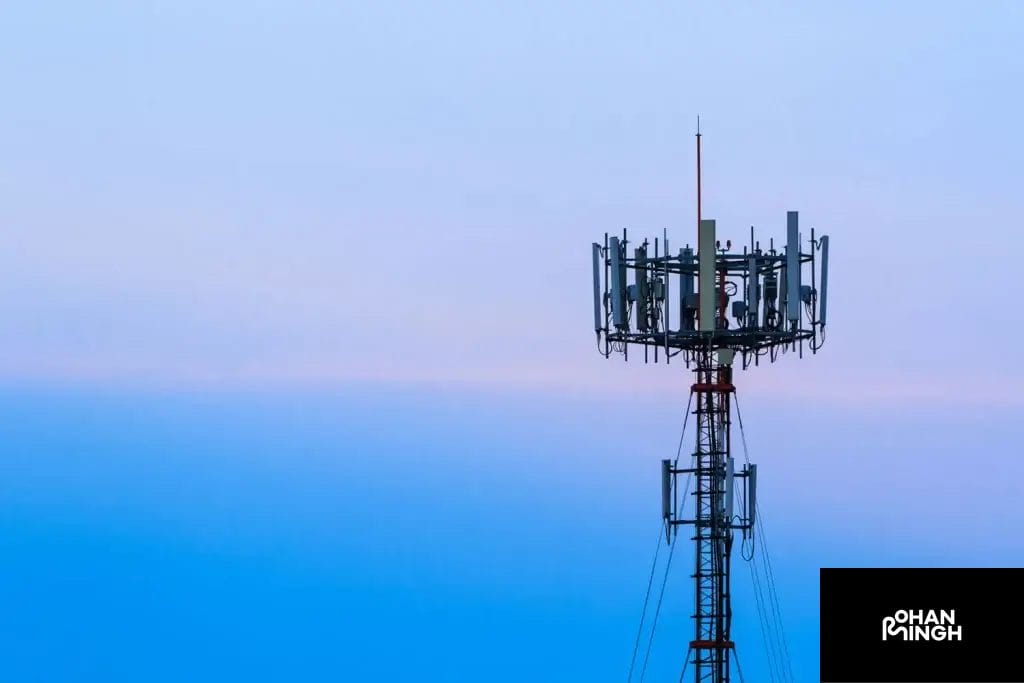
Final Thoughts
In conclusion, Verizon, T-Mobile, and AT&T have each developed their unique marketing strategies in the highly competitive wireless carrier industry. Verizon’s focus on reliability and network strength has positioned them as the industry leader, appealing to consumers who prioritize consistent and wide-reaching coverage. Their marketing campaigns highlight their extensive network coverage, emphasizing their commitment to keeping customers connected wherever they go.
On the other hand, T-Mobile has differentiated itself by adopting a more consumer-centric approach. By offering unlimited plans, additional perks like free international data roaming, and a comprehensive 5G network, T-Mobile has successfully captured the attention of potential customers seeking both value and innovation. Their marketing campaigns, featuring celebrities like Kate McKinnon, aim to resonate with a younger audience and showcase the benefits of choosing T-Mobile.
AT&T, with its focus on business plans and solutions, has carved out a niche for itself as a preferred choice for enterprises and government agencies. Their marketing strategy highlights their business phone plans, mobile device management capabilities, and premium network access. This targeted approach caters to the specific needs of organizations, positioning AT&T as a trusted partner in providing reliable connectivity and innovative solutions.
In the end, the choice between Verizon, T-Mobile, and AT&T comes down to individual preferences and priorities. Whether it’s network reliability, value for money, or business-focused solutions, each carrier has its strengths and offerings. It’s important for consumers to carefully evaluate their needs and compare the available options to make an informed decision that best suits their requirements.
FAQs
What is the mobile carrier market?
The mobile carrier market refers to the industry in which companies provide wireless communication services to customers. It includes major players such as Verizon, T-Mobile, and AT&T, who compete to offer the best network coverage, data speeds, and customer service.
What are the marketing strategies of Verizon, T-Mobile, and AT&T?
Verizon focuses on reliability and network strength, showcasing its extensive coverage and commitment to keeping customers connected. T-Mobile adopts a consumer-centric approach, offering unlimited plans, innovative perks, and a comprehensive 5G network. AT&T targets businesses and government agencies, highlighting their business plans, mobile device management capabilities, and premium network access.
How do the three companies compare in terms of market share?
Verizon is the largest wireless carrier in the U.S., followed closely by AT&T. T-Mobile has been steadily gaining market share and is now considered one of the major competitors in the industry.
Which company has the best network coverage?
Verizon is widely recognized for having the best network coverage, offering a consistently strong signal across the country. T-Mobile’s network coverage has greatly improved in recent years, while AT&T also provides reliable coverage.
How do the companies differ in terms of data speeds?
Verizon consistently ranks highest in terms of data speeds, providing a fast and reliable connection for customers. T-Mobile also offers competitive data speeds, while AT&T’s speeds are generally considered to be reliable but slightly slower.
Which company has the best customer service?
Verizon has built a reputation for excellent customer service, prioritizing customer satisfaction and consistently scoring well in customer satisfaction studies. T-Mobile has made significant efforts to improve customer service in recent years, while AT&T’s customer service is generally regarded as average.
What are some notable commercials from these companies?
Verizon is known for its “Can you hear me now?” campaign, emphasizing the reliability of its network. T-Mobile’s commercials often feature celebrities like Kate McKinnon and focus on the benefits of their unlimited plans and innovative perks. AT&T’s commercials often highlight their business solutions and demonstrate the ways they can support organizations.
How can marketing tools be utilized in the mobile carrier market?
Marketing tools such as social media platforms, data analytics, and customer relationship management systems can be used to target specific audiences, analyze customer data, and track the effectiveness of marketing campaigns. These tools allow companies to tailor their messaging and strategies to better meet the needs and preferences of their customers.
What marketing trends are shaping the mobile carrier market?
Some key marketing trends in the mobile carrier market include an increased focus on unlimited plans, the expansion of 5G networks, the rise of personalized marketing, and the inclusion of additional perks and benefits for customers. Companies are also investing in influencer marketing and leveraging social media platforms to engage with their audience.
Are there any interesting statistics about the mobile carrier market?
According to recent data, Verizon holds approximately 31% of the market share, followed by AT&T with around 29%, and T-Mobile with about 25%. The mobile carrier market is expected to continue growing, with revenue projections of over $200 billion by 2025. Additionally, the adoption of 5G technology is predicted to drive further innovation and competition in the industry.
When should you pick Verizon or T-Mobile?
When it comes to choosing between Verizon and T-Mobile, it ultimately comes down to your specific needs and priorities. If you’re on a tight budget, T-Mobile’s unlimited plans may be more appealing as they typically offer more affordable options with generous data caps. T-Mobile also includes additional perks such as free international data and texting, which can be a major advantage for frequent travelers.
On the other hand, if you prioritize coverage in rural areas and need consistently reliable service, Verizon is the clear winner. With its extensive network, Verizon provides broader coverage across the country, ensuring that you stay connected even in remote areas. Additionally, if download speed is crucial for you, Verizon consistently ranks highest in terms of data speeds, delivering fast and reliable connection speeds.
Ultimately, when deciding between Verizon and T-Mobile, it’s important to assess your budget, data usage, travel preferences, coverage in rural areas, and speed requirements. Consider what matters most to you and choose the carrier that aligns with your specific needs.
What's better AT&T or Verizon?
When it comes to choosing between AT&T and Verizon, there are a few key factors to consider. One of the most important considerations is pricing. AT&T tends to offer more competitive pricing options, with a range of plans to suit different budgets. Verizon, on the other hand, often positions itself as a premium carrier with higher prices for its services. However, Verizon makes up for this with superior coverage and data speeds.
Speaking of coverage, Verizon has consistently been recognized as having the best nationwide coverage in the United States. Their extensive network ensures that you can stay connected even in remote areas, making it an appealing choice for those who prioritize coverage. In terms of data speeds, Verizon consistently ranks highest, delivering fast and reliable connection speeds. This is particularly important for users who rely on high-speed data for streaming, downloading, and gaming.
When it comes to business strategy, AT&T focuses on providing a range of services beyond just wireless coverage. With their acquisition of WarnerMedia, AT&T can offer additional perks such as discounted access to streaming services like HBO Max. This positions AT&T as a comprehensive media and communication provider, appealing to customers who want bundled services.
In comparison, Verizon places a strong emphasis on its network coverage and reliability. They invest heavily in expanding and improving their infrastructure to ensure a consistent and reliable wireless experience for their customers. Verizon’s business strategy revolves around being the go-to carrier for those who need the best coverage and fastest data speeds.
In conclusion, the better choice between AT&T and Verizon greatly depends on individual needs. If cost is a major factor and you do not rely heavily on coverage in remote areas, AT&T may be the more budget-friendly option. However, if you prioritize coverage, data speeds, and reliability, Verizon is the clear winner. Assess your needs, consider your budget, and choose the carrier that best aligns with your priorities.
What is Verizon's strategy?
Verizon’s marketing strategy focuses on positioning itself as the leader in wireless coverage and reliability. With a long history in the industry and a significant market share, Verizon has established itself as one of the largest and most trusted wireless carriers in the United States. They have invested heavily in expanding and improving their network infrastructure, ensuring that their coverage map is extensive, reaching even the most remote areas.
One key aspect of Verizon’s strategy is its commitment to providing the fastest data speeds. They consistently rank highest in terms of data rates, making them a preferred choice for users who rely on high-speed data for streaming, downloading, and gaming. This emphasis on speed and reliability sets Verizon apart from its competitors.
Additionally, Verizon prides itself on delivering exceptional customer service. They understand that providing a positive customer experience is essential for retaining and attracting customers. Their dedication to customer service is evident in their response times, efficient resolutions, and personalized support. By prioritizing customer satisfaction, Verizon aims to build long-term relationships and loyalty among its user base.
In summary, Verizon’s strategy revolves around its superior network coverage, faster data speeds, and commitment to excellent customer service. These factors contribute to their position as an industry leader and set them apart from their rivals in the wireless carrier market.
Does ATT or Verizon have more customers?
When it comes to the number of customers, AT&T and Verizon are both major players in the wireless carrier industry. However, in terms of customer base, Verizon currently holds a slight edge over AT&T. As of the most recent data available, Verizon reported having approximately 159 million total customers, including both postpaid and prepaid subscribers. On the other hand, AT&T reported having around 153 million subscribers.
Over the years, there have been various trends and changes in the number of customers for both AT&T and Verizon. Both companies have experienced fluctuations in their customer base due to factors such as intense competition, evolving market demands, and the introduction of new technologies. However, despite these fluctuations, both AT&T and Verizon have remained industry leaders in terms of market share.
It’s important to note that the wireless carrier industry is highly competitive, and companies constantly strive to attract and retain customers through innovative marketing strategies and appealing offers. As the industry continues to evolve, it will be interesting to see how AT&T and Verizon adapt their marketing tactics to stay ahead and continue to grow their customer bases.
What are the 4 competitive market structures?
In the telecom industry, there are four main competitive market structures: perfect competition, monopolistic competition, oligopoly, and monopoly. Each structure represents a different level of competition and market concentration.
Perfect competition refers to a market structure where many small competing firms offer identical products or services. In the telecom industry, perfect competition is not commonly found as it would require numerous small wireless carriers offering the same plans and services.
Monopolistic competition occurs when there are multiple firms in the market, but each offers slightly differentiated products or services. This structure is more common in the telecom industry, with examples like T-Mobile, Verizon, and AT&T. Although they offer similar wireless services, each company has its unique selling points, such as unlimited plans or additional perks like Apple Music subscriptions.
Oligopoly is the dominant market structure in the telecom industry. It is characterized by a small number of large firms that dominate the market. Verizon, T-Mobile, and AT&T are prime examples of oligopolistic competition. These major carriers have a significant market share and industry power, often engaging in aggressive marketing campaigns to attract customers.
Finally, a monopoly represents a market structure where there is a single dominant firm that controls the entire market. While there may be some regional monopolies in the telecom industry, overall, the market is not fully monopolized.
Overall, the telecom industry is predominantly characterized by an oligopolistic market structure, with a few major carriers like Verizon, T-Mobile, and AT&T dominating the market and competing for customers through various marketing strategies.
What are the two most competitive market structures?
In the ever-evolving telecom industry, two market structures stand out as the most competitive: monopolistic competition and oligopoly.
Monopolistic competition is prevalent in the telecom industry, exemplified by companies like Verizon, T-Mobile, and AT&T. While these major carriers offer similar wireless services, they differentiate themselves through unique selling points. Verizon may emphasize its extensive network coverage, T-Mobile highlights its unlimited plans, and AT&T may focus on its additional perks like Apple Music subscriptions. These companies vie for market share by constantly innovating and improving their offerings to attract and retain customers.
On the other hand, oligopoly dominates the telecom industry as the top carriers like Verizon, T-Mobile, and AT&T hold significant market power. This market structure is characterized by a small number of large firms controlling the majority of the market. These companies engage in fierce competition, often employing aggressive marketing strategies to gain an edge. They invest heavily in advertising campaigns featuring celebrities like Kate McKinnon to increase brand recognition and entice potential customers. Additionally, with their duopoly status and substantial subscriber base, Verizon and AT&T maintain a tight grip on the industry, while T-Mobile, with its disruptive “Un-carrier” approach, continues to challenge its dominance.
Through their continuous efforts, these market leaders shape the telecom industry through their competitive market structures, pushing the boundaries of innovation and enhancing experiences for consumers.
Is Verizon faster than ATT?
When it comes to network speed, Verizon has consistently been hailed as the leader among wireless carriers. Independent studies and tests have shown that Verizon’s network offers faster and more reliable speeds compared to AT&T. According to coverage maps, Verizon has a broader network coverage, ensuring a stronger signal strength and faster data speeds in more areas.
A study conducted by Ookla, the global leader in internet testing and analysis, revealed that Verizon had the fastest overall download and upload speeds in the United States. Their network consistently outperformed AT&T in terms of speed, allowing Verizon users to enjoy smooth streaming, quick downloads, and seamless browsing experiences.
These findings are further reinforced by other independent studies and customer testimonials. Verizon’s dedication to providing a high-speed network has solidified its position as an industry leader, making it an attractive choice for customers who value fast and reliable data connections.
So, if you’re seeking a carrier that offers top-notch network speed, Verizon is the clear winner over AT&T. With Verizon, you can trust that you’ll have the speed you need to stay connected, productive, and entertained.
What Marketing Strategy Did Cheetos Employ for Plants vs. Zombies Collaboration?
Rohan Singh | May 1, 2024 | Acquisition What Marketing Strategy Did Cheetos Employ for Plants vs. Zombies Collaboration? Background on Cheetos Cheetos, a popular brand of cheese-flavored snacks, has made a name for itself with its bold and playful marketing strategies. Known for its irreverent and creative campaigns, Cheetos has consistently found unique ways […]
What Marketing Strategy Did Cheetos Employ for Plants vs. Zombies Collaboration?
Rohan Singh | May 1, 2024 | Acquisition What Marketing Strategy Did Cheetos Employ for Plants vs. Zombies Collaboration? Background on Cheetos Cheetos, a popular brand of cheese-flavored snacks, has made a name for itself with its bold and playful marketing strategies. Known for its irreverent and creative campaigns, Cheetos has consistently found unique ways […]
What Differentiates Differentiated Marketing Strategy from Undifferentiated?
Rohan Singh | April 30, 2024 | Acquisition What Differentiates Differentiated Marketing Strategy from Undifferentiated? Definition of Differentiated Marketing Strategy A differentiated marketing strategy is a targeted approach that focuses on creating unique products or services to meet the specific needs and preferences of different customer segments. It recognizes that customers have diverse tastes, preferences, […]
What Sets Apart the Marketing Concept from a Marketing Strategy?
Rohan Singh | April 29, 2024 | Acquisition What Sets Apart the Marketing Concept from a Marketing Strategy? Definition of Marketing Concept The marketing concept is a philosophy that places the customer at the center of all marketing activities. It focuses on understanding the needs and wants of the target market and delivering value to […]
Which promotional mix strategy targets market channel members?
Rohan Singh | April 28, 2024 | Acquisition Which promotional mix strategy targets market channel members? When it comes to promoting a product or service, companies utilize various strategies to reach their target audiences. One key strategy that directs marketing efforts toward market channel members is known as trade promotion. Trade promotion is a type […]
Should charter schools adopt regional or national marketing strategies?
Rohan Singh | April 27, 2024 | Acquisition Should charter schools adopt regional or national marketing strategies? Purpose When it comes to marketing strategy in the field of charter schools, two broad approaches can be taken: regional and national. Each approach has its purpose and benefits depending on the goals and aspirations of the charter […]
Similar articles about Acquisition Strategy:
Ready to Plan Your Dream Trip with ChatGPT Vacation Planner?, Want to Experience the Magic of Third-Party ChatGPT Plugins?
How can Efficient Project Management Boost Your Success?, Looking to Boost Your YouTube Views? Use ChatGPT for Top-Notch Video Optimization!, Are You Leveraging SEO Audits to Win More Clients?, Ever Thought of Starting an AI Career? Discover How Today!, Can SEO Propel Your Store to 1 Million Monthly Visitors?, How Can Google Bard Supercharge Your SEO Content Strategy?
Which is the Best AI Chatbot? A Head-to-Head Comparison of ChatGPT, Claude 2, Bing Chat, and Google Bard, Eager to Multiply Local Business Reviews from Travelers?, Want a Game-Changer in SEO? Have You Tried AI and Chrome Extensions Yet?, Can AI-Powered Growth Spark Your Business Acceleration and Digital Transformation?, Ready to Achieve SEO Mastery and Stand Out in the Digital World?
Ready to Dominate the Future? How Can You Kickstart Your AI Data Science Career Today?, Want to Dominate Google SERP? Learn How to Supercharge Your Content Strategy!, Have You Explored the ChatGPT Android App Yet?, Ready to Supercharge Your Business? Harness the Power of Always-On PPC Strategy Now!
Are You Choosing the Right Digital Agency for Your Business? Discover the 5 Key Considerations!, How Can AI Marketing Tools Transform Your Social Media Career?, How Can You Dominate YouTube Rankings with SEO in 2023?
Struggling with Competitive Organic Keywords? Try Our Advanced Keyword Domination Strategy!, Want to Dominate Google Page Ranking? Discover the Secrets Here!, Can You Transform Unexpected Publicity into Opportunity with PPC?
Want to Create High-Converting Emails Fast? Have You Tried AI Copywriting & ChatGPT?, How Can You Thrive in the AI Era? A Guide to AI Survival, Want to Dominate Google’s First Page? Discover the Essential SEO Ranking Factors, How to Implement Generative AI Tools Safely and Ethically? Navigating the Ethical AI Implementation Quandary
Ready to Scale Your Career? How to Learn Growth Marketing in 6 Transformative Steps, Ready to Launch Your Career? How to Land Your First Digital Marketing Job: A Must-Read Guide for Freshers!, Want to Safeguard Your Paid Search Campaigns? Discover Proven Strategies Here!
Looking to Boost Your WordPress SEO with AI? Here are 12 Tools You Can’t Miss!, Want to Boost Your Google Rankings? Master SEO Strategies to Hit #1 Now!, How Can AI SEO Revolutionize Your Online Strategy?, Are Your High Schoolers Ready for the AI Wave?, How Can You Achieve Perfect SEO Harmonization?, Ready to Ignite Niche Buzz? Learn How to Fuel Demand!, Ready to Supercharge Your Digital Marketing Agency’s Growth?,
Can ChatGPT Elevate Your PPC Strategy?
Ready to Dominate Digital Marketing in 2024 Using AI?, Want the Secret to #1 Rankings with SEO Web Design?, Ready to Break Language Barriers with Google Bard?, Ready to Boost Your Cleaning Business via Google Ads with Mcelligot?
How Can You Master Google Analytics 4 Quickly?, How Can SEO Mastery Elevate Your Brand’s Future?, Want to Boost Your SEO in 2023? How Can Guest Posting Help?, Want to Top Google’s Charts? How Can the ChatGPT SEO Hack Propel You?
Want the Best Visibility for Your Videos? How Does Video SEO Upload Make a Difference?, How Can You Improve Your Video’s Rank with YouTube SEO Tips?, How Can SEO be Your Ultimate Tool for Generating Leads Forever?, How Can SEO Boost Elevate Your Ranking and Conversion Rates?
How Can Digital Marketing Supercharge College Enrollment?, How Can SEO Mastery Ensure Endless Lead Generation?, How Can You Craft an AI-Ready Resume for Modern Recruitment?, How Does Venmo’s Marketing Strategy Drive Success?
How Can an Effective CEO Branding Strategy Elevate Your Business?, What Makes Doritos’ Marketing Strategy a Winning Formula?, How Does IKEA’s Marketing Strategy Revolutionize Home Furnishing?
What Sets Apart Samsung’s Advertising Strategy for Success?, How Does Nintendo’s Marketing Strategy Revolutionize Gaming?, How Does Bank of America’s Marketing Strategy Drive Success?
How Does Nestle’s Marketing Strategy Drive Business Growth?, What differentiates Nike and Adidas marketing strategies?, What differentiates a Go-to-Market Strategy from a Marketing Strategy?, What are the marketing strategies of Amazon and Flipkart?
What distinguishes a pull strategy from a push strategy in marketing?, What are the marketing strategies of Pepsi and Coke?
What distinguishes a Chief Strategy Officer from a Chief Marketing Officer?, What sets apart a marketing strategy from a sales strategy?
What are the marketing strategies of Colgate and Pepsodent?, What differentiates marketing research from marketing strategy?, Examples of marketing strategy and tactics, What is an effective marketing strategy for car dealers?
How does Nike’s marketing strategy drive its success?, How does Nike execute its international marketing strategy?, What’s the secret behind an effective hot sauce marketing strategy?, What drives Amazon’s powerful marketing strategy?
How can an innovative marketing strategy drive business growth?, What is Nissan’s effective advertising strategy?, What are the differences between one-to-many and one-to-one marketing strategies?, What sets apart big business and small business marketing strategies?
What differentiates Amazon’s marketing from its business strategy?, How can small businesses choose between global marketing standardization and adaptation?, Which platform offers the best marketing strategy: YouTube, Facebook, or Instagram?, How does Nike’s marketing strategy compare to Reebok’s?
Which marketing strategy is better: Deluxe or Premium?, What marketing strategy suits tangible vs intangible dominant products?, Guerilla marketing vs bootstrap marketing: Which is more effective?, Which is better: Niche marketing or concentrated marketing?
What are the differences between undifferentiated, differentiated, and concentrated marketing strategies?, What was the marketing strategy for Mayweather vs. McGregor?, What distinguishes the marketing strategies of Suzuki and Honda motorcycles?, Which is more effective: Regional or national marketing strategy?
What differentiates global marketing strategy from a multidomestic strategy?, Which marketing strategy is ideal for tangible vs. intangible dominant products?, How does Pepsi’s marketing strategy compare to Coca-Cola’s?, When is it appropriate to use differentiated marketing versus a mass market strategy?, What sets apart the marketing strategy for services from products?, How do HP and Dell differ in their marketing strategies?
How do PlayStation and Nintendo differ in their marketing strategies?, How do Timex and Rolex differ in their marketing strategies?, What is the purpose and focus of a social marketing strategy?, How does Facebook’s marketing strategy compare to Google’s?, When to choose concentrated marketing strategy over differentiated marketing?, How does Lowe’s marketing strategy compare to Home Depot’s?
Is it better to use multiple brand names or one brand name in your marketing strategy?, Which is more effective: marketing strategy with coupons or email campaigns?, What sets Verizon, T-Mobile, and AT&T apart in their commercial marketing strategies?,What Sets Apart Global Marketing Strategy from US Marketing Strategy?
Multinational vs. Transnational Marketing Strategy: What’s the Difference?, What’s the Distinction: Advertising vs. Marketing Strategy? Uncover the Differences., What Are the Advantages of Centralized and Decentralized Marketing Strategies?
What’s the Difference Between Guerrilla and Bootstrap Marketing Strategies?, How Do Pepsi and McDonald’s Differ in Marketing Strategies?, What Differentiates a Marketing Strategy from Tactics Deck?, What Sets Apart Suzuki and Honda Marketing Strategies?, How Does a Vision Statement Differ from a Marketing Strategy?,What’s the Difference Between Concentrated and Undifferentiated Marketing Strategies?
How Do Microsoft and Apple Differ in Marketing Strategies?,What Sets Apart the Marketing Strategies of Xbox One and PS4?,What Sets Apart Li Ning and Adidas Marketing Strategies?, How Do Pepsi and Coke Differ in Marketing Strategies?, How Do Distribution Strategy and Marketing Strategy Intersect?, What Sets Apart Global and Domestic Marketing Strategies?, What Makes an Effective Marketing Strategy for Consulting Services vs Operations?, What’s the Difference Between a Digital Marketing Plan and Digital Strategy?
How Does Marketing Strategy Impact Channel Selection? ,How Do Boeing and Airbus Differ in Their Marketing Strategies?, What is the Difference Between Corporate and Marketing Strategy?,What can we learn from Walmart’s global vs marketing strategy case study?, What distinguishes General Motors’ marketing strategy from Ford’s?, What are the differences in marketing strategies between McDonald’s and Burger King?, What is the difference between marketing and commercial strategy?, What distinguishes Home Depot and Lowe’s marketing strategies?,
How does marketing strategy differ for small businesses vs. big businesses?,What sets IKEA’s marketing strategy apart from competitors?, What are the marketing strategies of Nestle and Cadbury? ,What Sets Apart Puma and Adidas Marketing Strategies?, What’s the Distinction Between Operational and Marketing Strategy?,
What Differentiates Marketing Strategy Text and Cases International Edition from US?, What Differentiates Marketing and Operational Strategies for Nonprofit Startups?,
What are the differences between Intel and AMD’s marketing strategies?, What Sets Apart Nokia and Samsung Marketing Strategies?, What’s the Difference Between Marketing Plan and Strategy for Therapists?, What Sets Apart Wendy’s, McDonald’s, and Burger King Marketing Strategies?
What’s the Difference Between Single Country Marketing and Global Marketing Strategy?, What Sets Apart Marketing Strategy from Sales Strategy?, What Differentiates Pizza Hut and Domino’s Marketing Strategies?, What’s the Distinction Between Channel Strategy and Marketing Strategy?, What Are the Essential Steps in Developing a Marketing Strategy?
What Makes Coca-Cola’s Marketing Strategy Successful?, What Sets Apart Mattel’s Marketing Strategy for Success?, What Is the Key to Goodwill Marketing Strategy?, What’s the Ideal Marketing Strategy for Senior Living Communities?, How Do You Formulate an Effective Marketing Strategy?, What Are the Four Steps to Designing a Customer-Driven Marketing Strategy?, What Makes UFC’s Marketing Strategy a Knockout Success?, How to Develop an Effective Marketing Strategy for a Consulting Firm?
What’s the Winning Marketing Strategy for Car Dealerships?, What Are the Four Steps to Designing a Customer-Driven Marketing Strategy?, What Differentiates Marketing Strategy from Corporate Strategy?, How Do Marketing Planning and Strategy Differ in Demographics vs Psychographics?, What distinguishes a Content Strategy from a Content Marketing Strategy?, Blue Ocean Strategy vs. 22 Immutable Laws of Marketing: Which Approach Drives Business Success?, Are digital marketing strategies superior to traditional ones?, What are the differences between inbound and outbound marketing strategies?, What Sets Apart Digital Marketing Strategy from Social Media Strategy?
What Sets Apart Marketing Strategy and Marketing Campaign?, How Did Uber Implement Their Growth Strategy?, What’s the difference between a digital marketing strategy and a social media strategist?, What Sets Apart Two-Sided and One-Sided Fast Food Marketing Strategies?, What’s the Distinction Between Marketing Product Manager and Marketing Strategy Manager?,
How Did Airbnb Execute Their Growth Strategy?, What differentiates a marketing strategy from a tactic?, What makes an effective museum marketing strategy?, What are the differences between traditional and digital marketing strategies?, How Do Advertising Objectives Align with Marketing Strategy Planning?, What Sets Apart Marketing and Operational Strategies for Startups?, What Differentiates Web Strategy from Digital Marketing Strategy?, What’s the Difference Between Project Management and Marketing Strategy?, How do Absolut and Smirnoff vodka differ in their marketing strategies?, How does marketing strategy differ for services versus operations?
Which Dominates: Amazon vs. eBay Marketing Strategy? Unveiling the Differences., How does a global marketing strategy balance adaptation and standardization decisions?, What Differentiates a Marketing Plan, Strategy, and Campaign?, What Are Canon and Nikon’s Marketing Strategies?, How does a content strategy differ from a marketing plan?, What sets marketing apart from strategy?,What sets apart a total web strategy from a web marketing strategy?, How do business strategy and marketing align for success?
What Are the Steps to Develop a Customer-Driven Marketing Strategy?, How Do B2C and B2B Marketing Strategies Differ?, What Sets Apart Marketing Strategy from Marketing Mix?, What’s the Difference Between Business and Marketing Strategy?, How does a Content Strategy differ from a Marketing Strategy?,
How Does the Good vs Evil Dynamic Impact Sex Sells Marketing Strategy?, How Does a Marketing Plan Differ from a Competitive Strategy?, Which marketing strategy works best for videos: Facebook or YouTube?, How Did Tata Communications Implement an Effective Emerging Markets Growth Strategy?,
How do Samsung and Sony differ in their 3D TV marketing strategies?, What Differentiates International and Domestic Marketing Strategies?, What’s the Distinction Between Commercial Strategy and Marketing Strategy?, How do Apple and Samsung’s marketing strategies compare?, What is the difference between marketing methods and marketing strategy?, What was the marketing strategy behind Sarabhai vs Sarabhai’s success?
Which Marketing Strategy Dominates: Tangible or Intangible?, What Sets Apart Blue Ocean and Red Ocean Marketing Strategies?, What are the differences in Walmart’s marketing strategy between the US and Mexico?, How do marketing plan, strategy, and management work together for business success?
Can you provide a marketing strategy vs marketing plan example?, What Differentiates Brand Building from Product Marketing Strategy?, What is the importance of an advertising strategy statement?, What Sets Apart Cisco’s B2B Marketing Strategy from Dell?, What are the differences in Intel and AMD’s marketing strategies?, What’s the Difference Between Marketing Plan, Strategy, and Management?
What’s the Difference Between Digital Marketing and Digital Strategy?, What’s the Difference Between Offensive and Defensive Marketing Strategies?, What’s the Marketing Strategy for Tangible vs. Intangible Dominant Products?, Which is Better for Your Business: Marketing Strategy vs. ClickBank vs. Quant?, Should I focus on marketing regionally or nationally? Expert insights revealed., Should a global marketing strategy prioritize adaptation or standardization?, What Sets Apart Marketing Strategies for Commodity Products vs. Luxury?, What Sets Apart Integrated Marketing Communications (IMC) from Traditional Promotion Mix Strategies?
Should charter schools adopt regional or national marketing strategies?, Which promotional mix strategy targets market channel members?, What Sets Apart the Marketing Concept from a Marketing Strategy?, What Differentiates Differentiated Marketing Strategy from Undifferentiated?, What Marketing Strategy Did Cheetos Employ for Plants vs. Zombies Collaboration?
Share :

